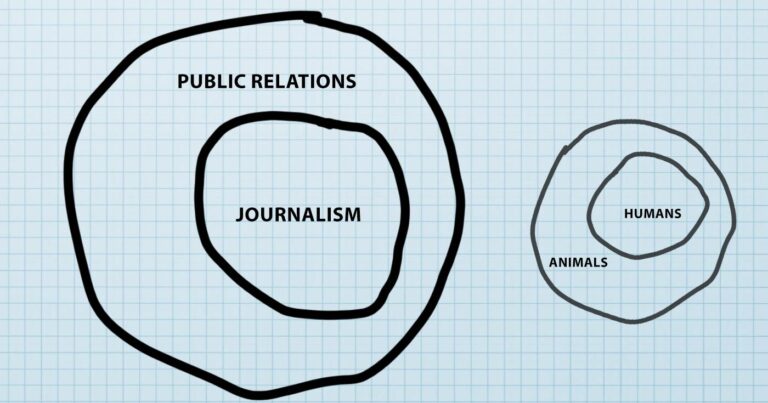“Digital journalism” and the absence of hyperlinks
Postmedia put up paywalls recently on their online properties. Whenever this kind of thing happens there’s usually a flourish of media about the future of journalism, and what digital journalism means for print, and whether paywalls are good for business, etc. And mostly I’m interested in all of this. But I’ve been growing increasingly critical of a couple of things.
One growing pet peeve of mine is the weird use of the term “digital journalism.” Digital journalism is just journalism. If you’re trying to distinguish digital journalism from print journalism, then fine. But mostly the strange overuse of “digital journalism” just reveals the dated centering of print journalism by the industry. All serious newspapers in North America have an online edition. Most reporters and editors and publishers have Twitter accounts by now. So please stop saying digital journalism as though “journalism” just refers to ink.
Which brings me to the my second, and main, concern.
Learn to hyperlink
Links are a fundamental unit of the web. Using links appropriately requires a basic threshold of knowledge and responsibility.
Back in 2007, Robert Niles at the Online Journalism Review recommended the use of hyperlinks in journalism. And back in 2010 there was a raging debate at the Nieman Lab whether links should go at the bottom, or in the main text of an article. In no way was it suggested that links should not get used at all. It’s still recommended that journalists and editors use links.
A case study in the failure to link
On May 15, many major news organizations in Canada published an article by award winning journalist Jim Bronskill, “Amnesty International cites Canadian foot-dragging on UN torture concerns.” It’s a good article written by a good journalist. And I’ve chosen this author’s article, in part, because it really exemplifies the way this issue is systemic and not about a particular news organization or a particular author.
I found ten versions of the article all posted on May 15th on sites ranging from the Calgary Herald to the Globe and Mail.1
The article is about the United Nations Committee Against Torture and Amnesty International and Canada. In all ten articles, the phrase, “in a June 2013 report on” is used in reference to a report published by the UN committee. This report is central to the article.
But none of these news articles linked to the report. Neither did they link to anything else that is relevant to the story.2
Everyone else would make a link to the relevant resources, in particular, the report. That’s a well worn internet social norm. If you’re not doing this, you’re being, well, anti-social. In case, you’re curious, I believe this is the report in question [PDF], but I’m honestly not sure.
Why journalistic organizations fail to link
Many agencies fail to link out to relevant websites, reports and data. But why? I think that news organizations that fail to link:
- are still working in a print media paradigm,
- worry that hyperlinks distract readers or cause a cognitive penalty,
- don’t want to lose site traffic or send readers away,
- believe that linking is what “bloggers do,”
- are afraid of losing Google juice and a subsequent loss in search engine optimization,
- are insecure and think that links hurt their brand as a definitive source of information,
- are in direct competition with the organizations they ought to link to,
- worry that readers will think that much of what they publish is, well, derivative,
- think they don’t have time to add links to stories that were first written for print,
- don’t care about web etiquette,
- don’t care about web publishing best practices,
- worry that their advertisers disagree with the values of the organizations they ought to be linking to,
- are putting short term business interests ahead of proper journalism.
News agencies claim they’re a necessary part of a healthy democracy and that they’re committed to the well being of our communities. I say prove it by getting committed to our online communities.
Step back and squint at a standard news organization’s web page. You’ll notice that the only outbound links are from paid advertisements. You know who else does that? Spammers and link farms do that.
- 2. Here are some links to the news agencies that ran this article: Ottawa Citizen, Winnipeg Free Press, Globe and Mail, The Province, The Edmonton Journal, The Star, The Montreal Gazette, The Calgary Herald, Leader Post, The Tyee ↩
- I should note that the Toronto Star article had two links, but they were only internal links to related issues. This tells me they cared enough to make links but not enough to link externally to the thing that mattered. ↩
Don’t miss a dispatch!







